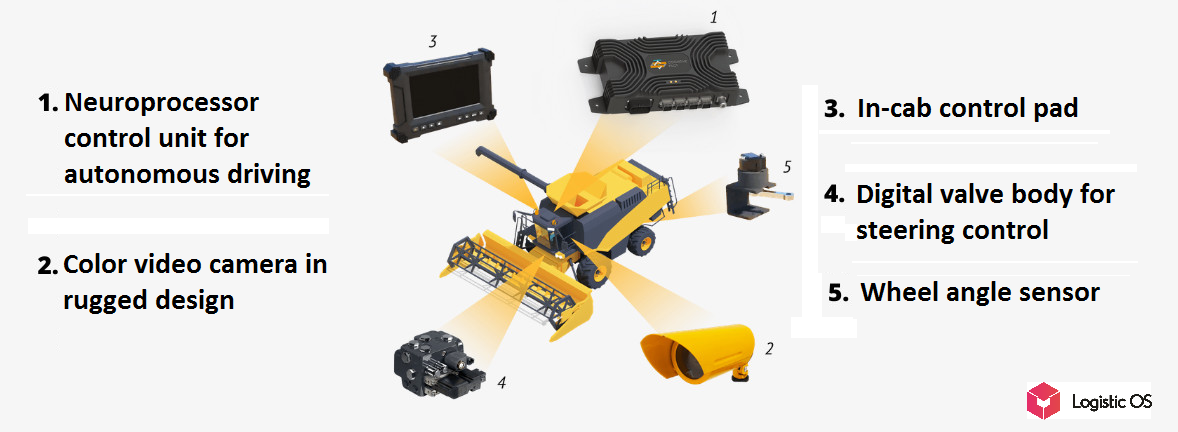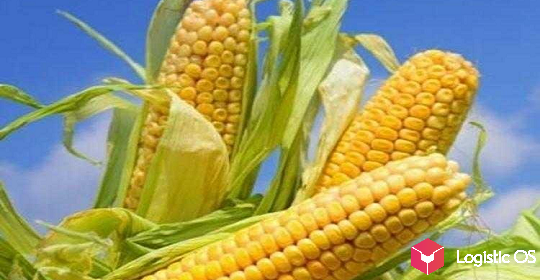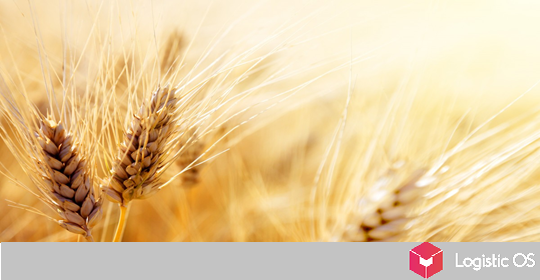The system of autonomous control of agricultural machinery has successfully worked in 35 regions.
Cognitive Agro Pilot is a system that allows you to autonomously control agricultural machinery: grain harvester, tractor, sprayer. At the same time, it works on the basis of artificial intelligence technologies.
The video camera installed on the equipment receives images, which the system analyzes and, using a deep learning neural network modified for agrotechnical tasks, determines the types and positions of objects along the movement, builds trajectories and sends commands for maneuvering.
The complex itself consists of an automatic control unit, a video camera and a display, and the user interface is created in the form of an application based on a smartphone or a tablet based on Android OS.
The terms are not the most familiar for farmers, but already this year more than 350 combines of the brands John Deere, Claas, New Holland, RSM and «Palles» were equipped with the Cognitive Agro Pilot and worked with it for 230 thousand hours, having covered over 950 thousand kilometers .
They began their work in the south of the country, where grain crops such as wheat and rye ripen earlier than anyone else.
Then the harvesters continued harvesting corn and sunflower, having mastered, among other things, the territories of the central and northern regions of the country.
As a result, with the help of domestic robotic technologies, 530 thousand tons were collected on 130 thousand hectares of grain crops (wheat, soybeans, oats, sorghum, buckwheat, etc.), as well as 130 thousand tons on 30 thousand hectares of row and roll crops (sunflower, corn, etc.).
The drones were «hired» in Kaliningrad, Kursk, Kaluga, Belgorod, Tambov, Penza, Rostov, Tomsk, Kurgan regions, Krasnodar, Krasnoyarsk, Stavropol Territories and in other regions.
What does the use of unmanned technologies give to farmers?
First is the maximum control and exclusion of the human factor.
Throughout the year, the agricultural producer is engaged in preparations for harvesting: plowing, sowing, fertilizing, etc. etc.
And then he has a very short period when the crop must be harvested with minimal losses. And here the human factor plays a huge role. This is the responsibility of the workers in general and their control over how the equipment works. You have to look in all directions, in a very short time, sometimes at the limit of human strength.
Robotic technology not only relieves most of the operator’s workload, but also ensures the highest quality work.
The system allows combine operators to focus on the rest of the harvesting parameters.
All this made it possible to attract women to the role of operator, whose share in the farms where such work was carried out increased by 2-3%.
Second is, of course, savings. This is fuel, and related materials, and a reduction in the time of the harvesting campaign (the number of engine hours) and active work of combines, and depreciation of equipment, and an extension of the period of active operation of equipment up to cap. repair, and optimization of business processes.
On all this, this year alone, the agrarians who took part in the experiment saved about 500 million rubles .
And if we look into the future and take into account that Russia is the largest exporter on the wheat market, in the near future every tenth combine may become unmanned, which will allow the agro-industrial complex to reduce harvesting costs by billions of rubles.

Cognitive Pilot is part of the Sberbank ecosystem, which plans in the near future, in partnership with Digital Agro and Agrosignal, to create a single agroecosystem for the accelerated digitalization of Russian agriculture.
According to preliminary estimates, so far only 15% of agricultural companies in the country use digital technologies.
The agroecosystem project being developed by Sber will be a software and hardware complex for unmanned equipment management, data collection, processing and transformation, as well as conducting all economic activities of companies in a single digital mode.
It is planned that by 2023 the planned total volume of products, services and services within the framework of the agreement will be about 20 billion rubles.

